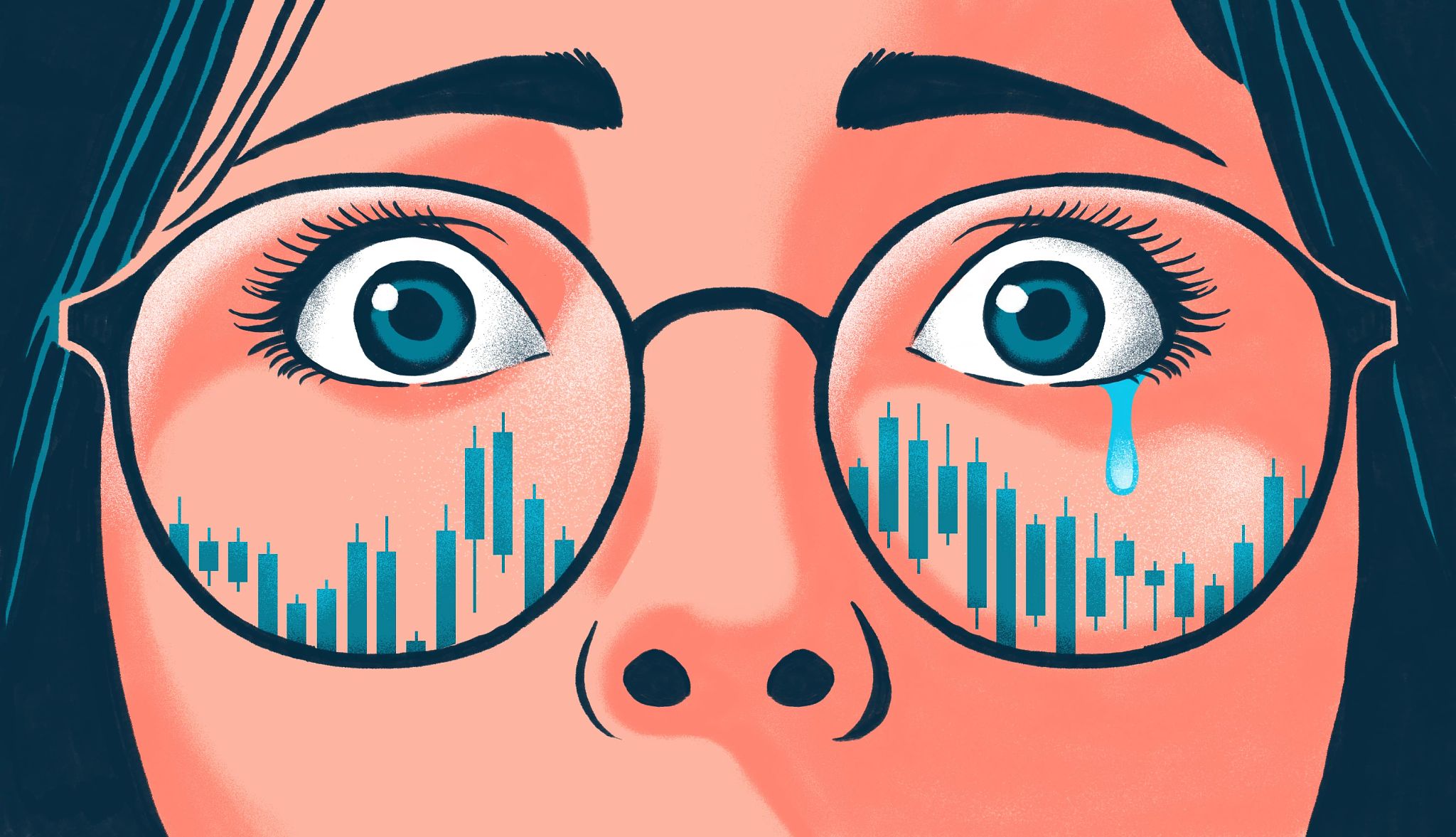AARP Hearing Center


Ever wondered why 401(k) holders shouldn’t panic during stock market slumps? Well, we were just served the perfect lesson on a platter.
U.S. stock markets tumbled on April 4, as investors grappled with President Donald Trump’s new tariff plan, mounting fears of a global trade war and growing concerns of a recession. The Dow Jones Industrial Average dropped over 2,200 points, or 5.5 percent. The S&P 500 sank nearly 6 percent. And the Nasdaq composite plummeted 5.8 percent, putting it in bear market territory with the index down over 20 percent from its record high. Those declines come on the heels of sharp sell-offs on April 3, triggered by Trump's tariff announcement.
“Negative news sells, because people are looking for things to worry about,” says Dan Egan, director of behavioral finance at investing platform Betterment. “When negative news happens, we tend to pay a lot of attention to it, like the market dropping 5 percent in a day. But if the market goes up, it doesn’t get as much fanfare, because our natural predilection is to look for scary things.”
It’s a perfectly human reaction. You see panic all around you; you see your net worth declining in real time; you get spooked. You want to preserve everything you have worked so hard for. Some people even experience a physiological reaction to financial news during periods of turbulence, with researchers drawing a connection between negative stock market information and anxiety.
We like to think of ourselves as perfectly rational beings, but we’re really not. We are susceptible to all sorts of biases, which can lead us to make poor financial decisions. In fact, there is an entire field of research, called behavioral economics, that tries to decode why we make the financial decisions we do.
For instance, making big financial moves in emotionally fraught moments, like raiding retirement accounts following a sudden stock market drop, typically leads to negative outcomes. Conversely, some people try to jump on the latest hot stock that's making headlines.
But if you're a long-term investor, your focus shouldn’t be whatever the market is doing that particular day, experts say — you should be looking 10, or 20 or even 30 years down the road. At any given moment the market can shoot up or down, and it’s not something an individual investor can control. But over time, the stock market returns around 10 percent a year.
CFRA Research’s chief investment strategist, Sam Stovall, recently ran the numbers on every market pullback (declines of 5 percent to 9.9 percent) and correction (declines of 10 percent to 19.9 percent) since World War II. His findings: In the average pullback, the market regained the lost ground in a month and a half; for corrections, it took less than four months.
The moral: Don't make knee-jerk decisions regarding your 401(k) when the market plunges. Stay calm and keep up with your contributions. That may not sound very exciting, but it is generally your best option for lasting wealth, research shows.
Fidelity Investments put together a hypothetical portfolio of $10,000 invested in 1980 through the end of 2022. Individuals who stayed invested the whole time would have ended up with a healthy $1.082 million, the analysis found. Those who missed the market’s five best days over that time frame would have been left with $671,051. Miss the best 10 days and you were down to $483,336. Miss 30 days and the balance dwindled to just $173,695.
To stay the course during turbulent times, you’ll need to keep your instincts in check and put some guardrails in place. Here are five reasons why experts say you shouldn’t raid your 401(k) when the stock market takes a nosedive.






































































More From AARP
Should You Be Charging Your Kid Rent?
More boomerang kids are moving back in with their parentsNavigate Retirement Surprises With Ease
Don’t panic — there are steps you can take to overcome these hurdles